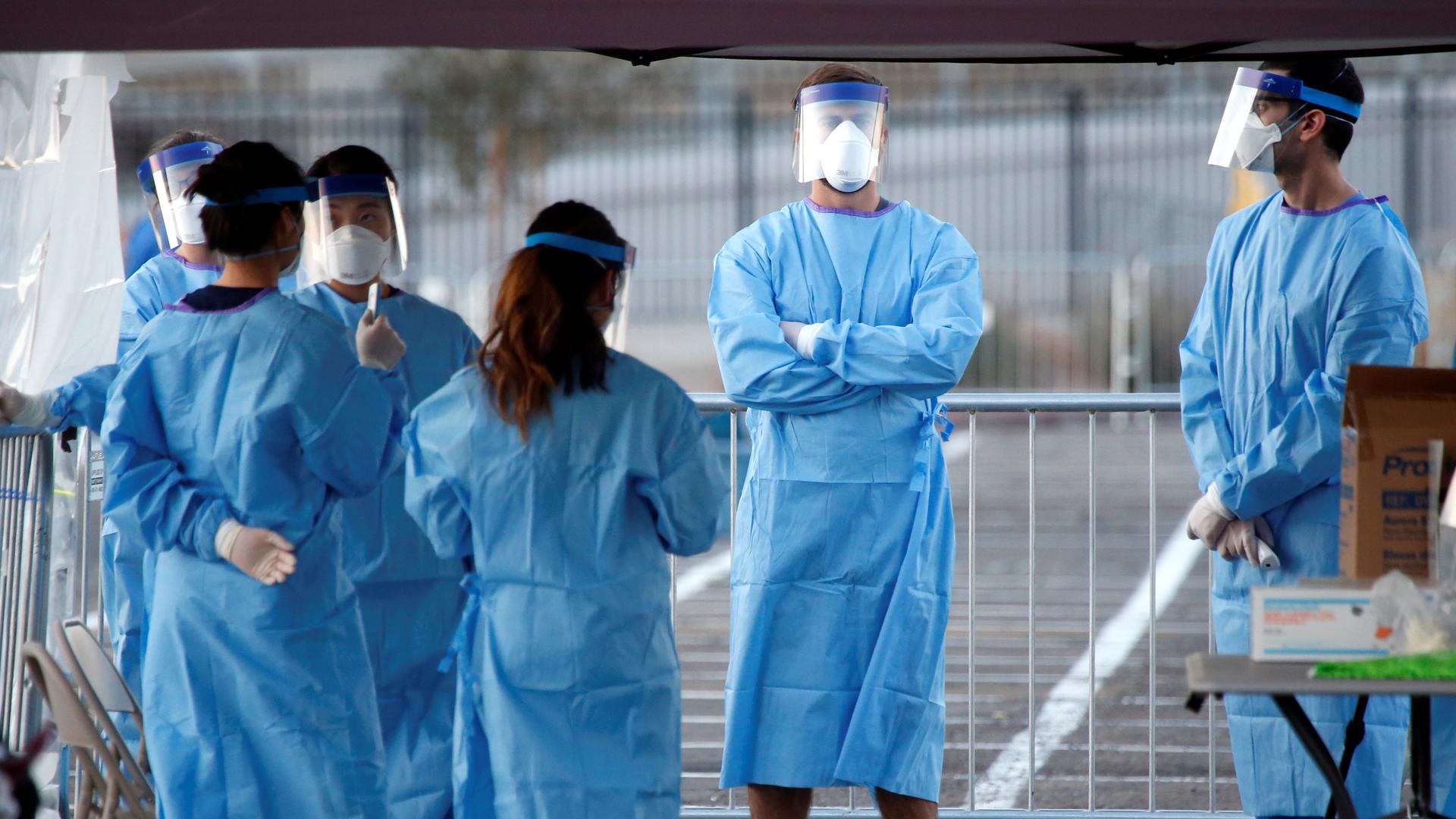One in 4 doctors in the US were born in another country. Many are on visas, often working in poor or rural areas that may soon be the front lines of the coronavirus pandemic.
“We’re at risk for getting the infection, like the doctors in Italy and China,” said Vara Ponnada, an Indian doctor on an H1-B visa in Waterloo, Iowa, where several people have tested positive for COVID-19.
But unlike other US doctors, who might be citizens or legal permanent residents, Ponnada said if she gets sick, it could have implications for her visa status.
Related: How the US coronavirus stimulus package compares to those of Europe
“Once we’re disabled, we can’t work; then, we can’t live in the country,” she said.
And neither can their children. Ponnada has lived in the US for 10 years, and her son and daughter have grown up here. She wonders what will happen to her family if she contracts coronavirus and dies.
“[It’s a] very scary situation even to think of,” Ponnada said. “Some of us are getting nightmares about that, like what happens to our kids in schools. Where is our future, we don’t know.”
“[It’s a] very scary situation even to think of,” Ponnada said. “Some of us are getting nightmares about that, like what happens to our kids in schools. Where is our future, we don’t know.”
Physicians like Ponnada are playing an increasingly vital role as US hospitals face staffing shortages caused by the coronavirus. Even in the best of times, the US depends on a steady supply of international medical graduates to staff its hospitals. More than 7,000 newly minted doctors are scheduled to begin hospital residencies on July 1, a time when they will probably be desperately needed.
The question is: can they get to the US?
Basim Ali, a medical school graduate in Pakistan, is supposed to join a Texas hospital. But he can’t get the paperwork he needs from the Pakistani Ministry of National Health Services, Regulation and Coordination for his US visa.
“The highways are blocked,” he said. “All the mail services are nonfunctional.”
Related: South Korea flattened the curve. Now what?
Despite the COVID-19 outbreak, the US State Department is working to bring international graduates like Ali to the US, said William Pinsky, CEO of the Educational Commission for Foreign Medical Graduates, the US agency that certifies people with international degrees to work in American hospitals.
“If indeed as the time gets closer, it appears that air travel is a significant barrier, then I will start having conversations with people that can impact air travel and see if there is anything that can be arranged.”
“If indeed as the time gets closer, it appears that air travel is a significant barrier, then I will start having conversations with people that can impact air travel and see if there is anything that can be arranged,” he said.
Related: Monopoly on COVID-19 treatment would be ‘dangerously stupid,’ MSF doctor says
In the meantime, he said the US could be considering other sources of help. For instance, there are thousands of people in the US with international medical degrees who never got one of the coveted — and competitive — training assignments that would allow them to work in a hospital.
“There very likely is a role for these people,” Pinsky said, adding that they could do tasks that would free up experienced doctors — such as help with medical note-taking, or manning phone banks to answer questions. His agency could verify their credentials, he said, and then it would be up to local regulatory authorities to determine how they could help.
“Get me in already. Desperate times call for desperate measures,” said Rami Bayaa, a Dallas resident who has a medical degree from a Caribbean college, but has never been accepted by a hospital for a residency. “It’s just frustrating for me and the thousands of people who have the skills. They have the knowledge, they have the ability, just as anyone else in the medical field. But we’re just sitting idly doing nothing.”
Bayaa is a dual US-Canadian citizen. He said if he can’t help people where he is, he may head to Canada.
